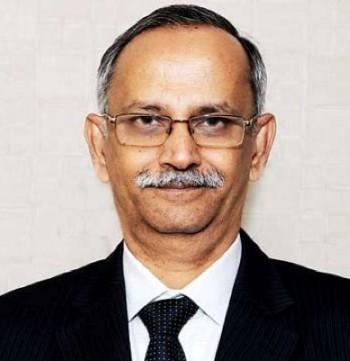'Strong regulations are crucial for the orderly development of the market.'

The mutual fund industry is on its way to achieving assets of Rs 100 trillion by the end of this decade, provided the industry continues to put in efforts, N S Venkatesh, CEO, Association of Mutual Funds in India, tells Abhishek Kumar/Business Standard.
MF growth subsided in 2022 after an outstanding 2021. What changed?
Calendar 2022 was a good year with the uptrend in systematic investment plan (SIP) inflows being the highlight.
The pace has indeed slowed down a bit compared to 2021 due to changed market conditions.
The volatility in the equity market might have led to some nervousness.
It has been three years since you came out with a Rs 100 trillion assets under management (AUM) target. How has the progress been thus far?
We have reached Rs 40 trillion.
Since we are dealing with retail investors, a lot of work needs to go in.
Currently, there are around 200,000 MF distributors. This number needs to go up to 700,000-800,000.
We are already working to raise the distributor count, which will ultimately lead to a bigger investor base.
I expect AUM to double by 2027-2028. By the end of this decade, Rs 100 trillion will be very do-able.

MFs often complain of overregulation. As an industry body, have you ever taken up the matter with the Securities and Exchange Board of India (Sebi)?
There is no over-regulation.
Strong regulations are crucial for the orderly development of the market.
Even a slip-up can break the trust of investors.
As an industry, we welcome the regulations brought by Sebi.
Amfi came out with two initiatives for distributors in 2022 -- an internship scheme and MFD Karein Shuru. How has the response been?
The MFD Karein Shuru campaign was received well.
The internship scheme is slowly picking up.
During the planning phase, some asset management companies (AMCs) had indicated they would take in hundreds of interns.
We are urging them to do so. Sebi has allowed us to take in as many as 5,000 interns. We are working to achieve this target.

IMAGE: N S Venkatesh, CEO, AMFI.
Photograph: Kind courtesy N S Venkatesh/Twitter
What are the plans to increase MF penetration?
We work on two fronts -- investor awareness and increasing distribution strength.
The advertising campaigns for investors are already in place and have been received well, especially those that feature Sachin Tendulkar and M S Dhoni.
We will stick to this route for investor awareness, along with physical meets, as the pandemic is behind us.
On the distribution side, you can expect more ad campaigns for MFD Karein Shuru initiative.
Do you plan to raise the budget for these initiatives?
The outlay for investor awareness programmes goes up every year.
In the case of MFD Karein Shuru, there are some limitations as Amfi is driving it through its finances. But I am sure that the budget for these programmes will go up.
If it was X in 2022, it will be X+Y in 2023.
What are some of the important proposals in your latest Budget wish list? How will they benefit the industry and investors?
The primary proposal is to bring all investment avenues on an equal footing.
For example, you need to hold investments in direct debentures for only a year to get indexation benefits, while debt fund investors have to wait for three years.
If these proposals go through, more money will flow into MFs.
We have also proposed a debt-linked savings scheme, which can be used to raise funds for infrastructure spending.
We have also requested the government to extend Section 54EC to MFs.
Currently, this Section exempts investments in certain bonds from capital gains tax.
How does Amfi manage to be fair to every fund house, given there are over 40 players with diverse interests?
As an industry body, we are agnostic to size.
All proposals are run through various committees and are ultimately sent to Sebi, based on their importance and not from which AMCs they come from.
Also, the Amfi board comprises 16 directors -- seven from larger fund houses and eight from mid-to-small ones. Even our committees have fair representation from all AMCs.
Feature Presentation: Rajesh Alva/Rediff.com












 © 2025
© 2025